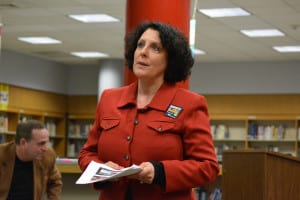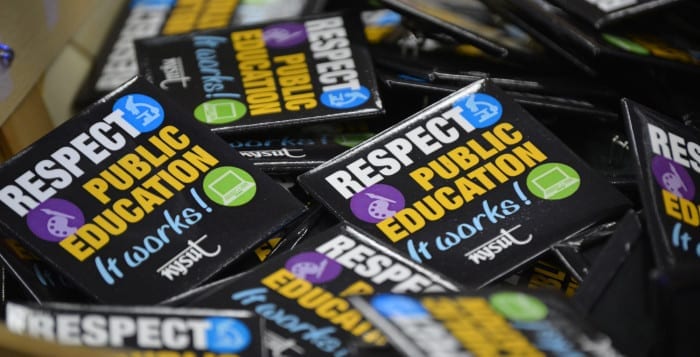A day after the state released next year’s education aid estimates, the Middle Country school district made its first presentation on the 2015-16 budget, which maintains programs and stays within the tax levy increase cap.
The almost $236 million budget, a 1.63 percent increase from this year, will continue to promote the district’s science, technology, engineering and mathematics — known as STEM — program, adds teachers to comply with a new state mandate and allocates for an extra section of pre-kindergarten. Under the plan, average homeowners with an assessed value of $2,200 will pay an extra $93.19 in taxes next year, according to school board President Karen Lessler’s April 1 presentation.
Like many other districts across the state, Middle Country is adding staff in order to comply with a state-mandated English as a second language initiative, which aims to help students whose first language is not English.
“The superintendent is working with implementing the regulations into the Middle Country school district and we’re currently looking at two to three teachers being staffed to meet this unfunded mandate,” Lessler said.

Lessler was pleased to share the good news that 60 percent of the Gap Elimination Adjustment will be returned to the district. The deduction began in the 2009-10 fiscal year as an effort to close the state’s deficit. The district will lose roughly $3.3 million in aid next year, which is less than the $9 million it lost this year.
“I want to be clear that this is not extra money that we’re getting,” Lessler said. “This is money that we’re entitled to have. It has been earmarked in our budget and there has been a reduction in this funding and finally this year we’re seeing some restoration of these funds.”
The board president also commented on why the district didn’t have budget meetings until April 1. She blamed Gov. Andrew Cuomo (D) and his lack of cooperation with releasing the state aid runs, which weren’t made public until March 31. Earlier this year, Cuomo said education aid would increase by 1.7 percent — $377 million — statewide if the state Legislature didn’t adopt his education reforms. A compromise, which included changes to the teacher evaluation and tenure systems, was reached and aid increased by about $1.4 billion.
Despite the lack of estimates in the beginning, the district put together a budget it feels will suit everyone in the community. The tax levy increase cap is about 1.75 percent, but has the potential to increase or decrease as the district crunches a few more numbers.
In regards to new programs, officials said they hope to add a science research program at the high school, which they feel will interest students. Lessler also commented on the success of the pre-kindergarten program and the need for another section.
If the budget is voted down, sports, clubs, full-day kindergarten and the pre-kindergarten program are among the offers that could be negatively impacted.
The board is expected to adopt the budget at the next board meeting on April 22. A budget hearing will be held on May 6 and the budget vote will take place on May 19.
This version corrects the budget total in Middle Country’s proposal.





